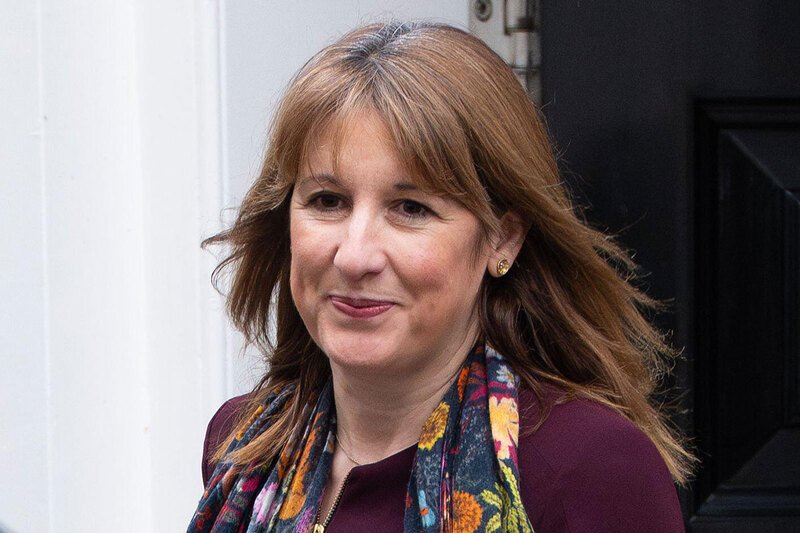David Bookbinder, director of Glasgow and West of Scotland Forum of Housing Associations, said: “Along with many other housing bodies, our top budget ask is that there’s no further freezing of LHA rates since they were last reset in April 2024.
“Every year that LHA rates are frozen means hundreds of thousands more private renters don’t have enough housing benefit to pay their rent, forcing people deeper into poverty and in turn putting even greater pressure on the social rented sector across the UK.”
Màiri McAllan, Scottish housing secretary, said: “We have created strong foundations in Scotland to ramp up housebuilding through our Housing Emergency Action Plan, which has committed up to £4.9bn to a major programme which will deliver up to 36,000 homes.
“However, these plans could be hampered by the UK government’s planned cuts to our capital funding and in a shortfall in financial transactions, which are a vital tool in delivering homes across Scotland. Plus, [Ms Reeves] could write off local authority Housing Revenue Account debt to encourage more investment in housing.”
Alison Watson, director of Shelter Scotland, said: “We need a capital budget that keeps pace with inflation so we can build the social homes Scotland so desperately needs.
“Councils also need to have adequate funding, especially those facing the largest demand due to the UK Home Office asylum decisions. Austerity policies like the LHA freeze and the two-child limit are pushing families into poverty. They must be scrapped.”
Callum Chomczuk, national director of CIH Scotland, said: “At the Autumn Budget, CIH Scotland stands with colleagues across the UK in urging the government to restore LHA to the 30th percentile and abolish the Shared Accommodation Rate, enabling more people to afford a home in the private rented sector.
“Ending the benefit cap and the two-child limit would be a vital step in tackling poverty across the UK and would prevent the Scottish government from having to divert resources to mitigate this.”
Richard Meade, chief executive of the Scottish Federation of Housing Associations (SFHA), said: “We know from the SFHA’s own research that four in five social tenants report being unable to meet an unexpected bill, while many also facing the impossible choice between heating and eating.
“Reforms to our social security system, in particular Universal Credit, are therefore well overdue. Universal Credit must provide enough for those on low incomes to afford household basics, and we need to see an end to policies like the two-child limit and the five-week wait which needlessly push families into poverty.
“As not-for-profit organisations, housing associations require certainty and stability to continue investing in their communities, so as well as this much-needed action on the cost of living, it’s vital this week’s Budget provides this stability.”
Homes for Scotland said: “Ahead of the UK Budget, Homes for Scotland urges the chancellor to introduce a UK-wide first-time buyer scheme. Such a measure would support aspiring homeowners, stimulate economic growth and provide the housebuilding sector with the certainty required to invest in more complex brownfield sites.
“Earlier this month, Homes for Scotland outlined to the secretary of state for Scotland the significant challenges currently facing the sector. These include the cumulative cost of regulation, the ongoing decline in the number of small and medium-sized house builders and the need to create a level playing field for investment decisions made by companies operating across Great Britain.”
The British Property Federation said: “We want to see the chancellor do more to unlock the private capital that is primed to invest in new homes, workplaces and infrastructure.
“The most significant barrier at present is development viability – it simply doesn’t make financial sense to build in many places in the UK. These include removing council tax on newly built homes before they are occupied for the first time, which would reduce upfront costs and avoid penalising developments with quicker build-out rates.
“[We also ask for] the restoration of multiple dwellings relief, which would assist with the delivery of a significant number of new build-to-rent (BTR) homes, given that by our calculation its abolition under the previous government stalled the delivery of up to 25,000 new BTR homes. Equally, continuing to reform the planning system, tackle grid capacity and end regulator delays, particularly from the Building Safety Regulator, must be priorities.”
Peter Hawley, director at SOWN Shared Ownership, said: “I am calling on the chancellor to change the status of shared ownership within the government’s housing policy.
“The current income limits of £90,000 in London and £80,000 elsewhere have been frozen while prices have continued to rise. In many higher value areas, including much of the South East, even buying a 25% share of a modest home is now out of reach, yet some households earning just above the cap still cannot buy on the open market.
“A more flexible system that uprates thresholds and allows regional variation would keep shared ownership focused on those who need help most, without shutting out the ‘missing middle’ of would-be buyers.”

